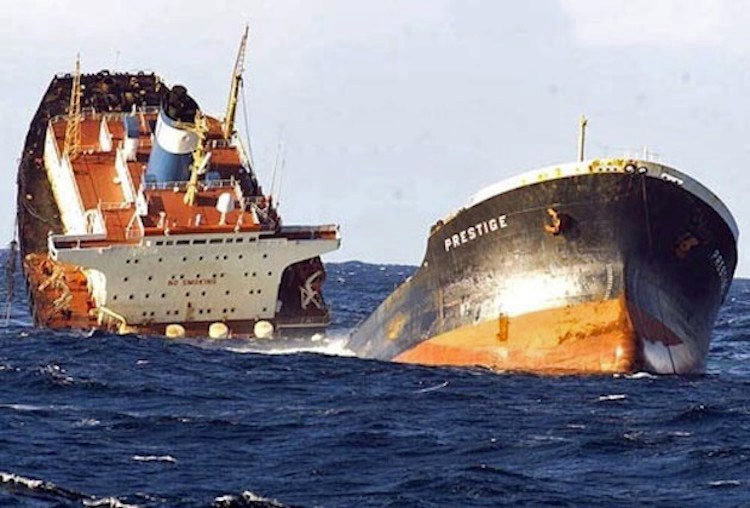This item appeared on gCaptain website 29 January 2016
The sinking of the Greek tanker released an estimated 63,000 tones of foul-smelling black fuel along the Galicia coast and forced the closure of the country’s richest fishing grounds.
As gCaptain reported earlier this week, Spain’s Supreme Court on Tuesday sentenced former captain Apostolos Mangouras to two years in prison over the disaster, overturning a previous ruling clearing him of criminal responsibility. Tuesday’s ruling found Mangouras guilty of recklessness resulting in catastrophic environmental damage and opens the door for damage claims against both the captain and the insurer.
The Greek tanker sank off Spain’s northwestern coast in 2002, causing the release of some 63,000 tons of oil into the sea and fouling thousands of miles of coastline in Spain, France and Portugal.
“This decision represents the dying gasps of a 14 year old attempt to deflect blame onto the shoulders of an octogenarian man, who has been cleared in the court of world opinion and by his peers,” commented ITF seafarers’ section chair Dave Heindel. “Thankfully it is likely to be as unenforceable as it is illogical. This innocent man cannot again be made to sit needlessly in jail.”
Heindel concluded: “The Mangouras case was one of the worst examples of the kneejerk criminalisation of seafarers. The ITF, like many other organisations and individuals, was able to support him during that ordeal. This latest piece of victimisation reminds us that we must all remain vigilant to protect seafarers from these injustices.”
Over the years, the main point of contention in the ongoing case has been the poor state of the 26-year-old tanker and the refusal by Spanish authorities to allow the ship to dock after it was damaged in a storm – the ship broke up and sank within days of the refusal.
In 2012, classification society ABS, which certified the seaworthiness of the vessel, was cleared of any liability in connections to the disaster. The suit was considered by many a “precedent-setting” case that would determine whether classification societies can be held responsible by third parties in an incident such as this.

